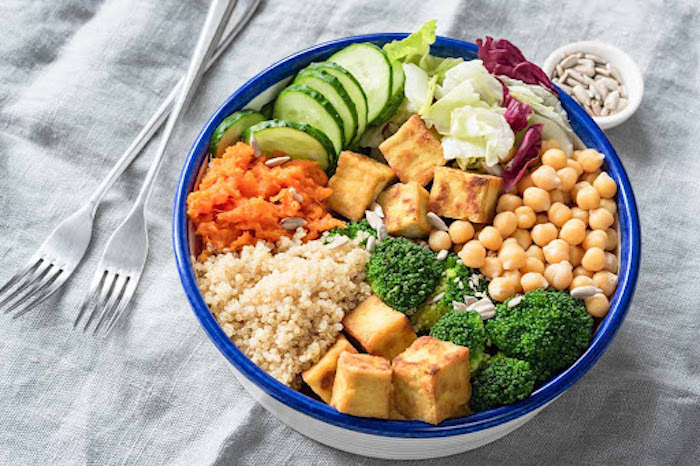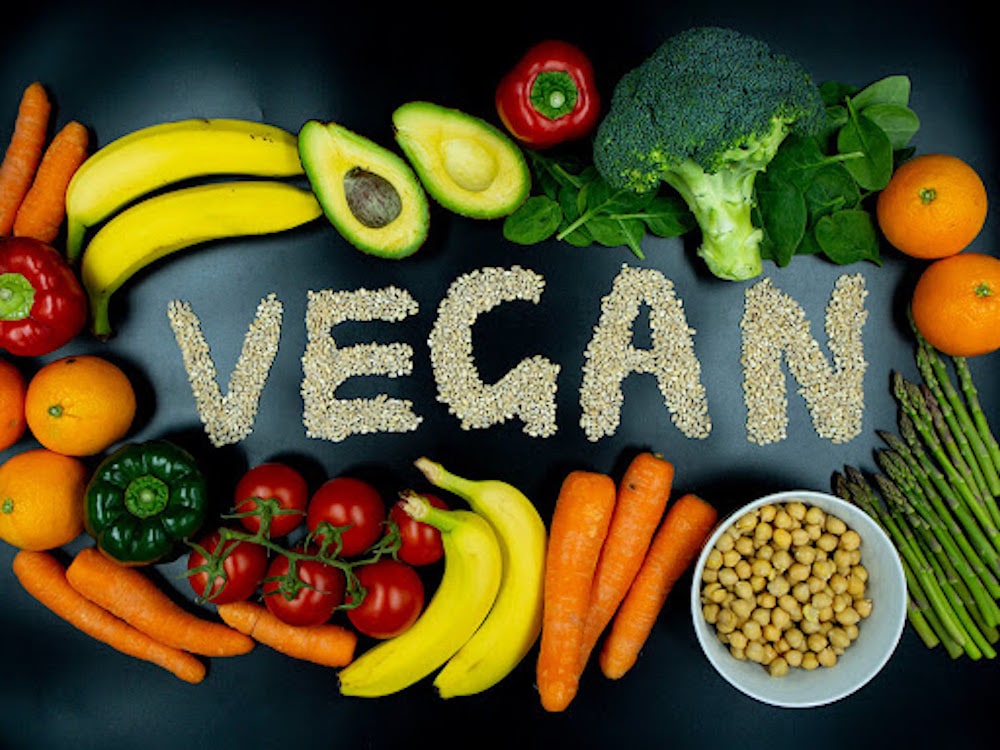Table of Contents
The vegan diet continues to cause controversy: we offer a description of the diet, contraindications, and possible health consequences of veganism. There are many variations of vegetarianism worldwide, but veganism is the most restrictive way of eating, which flows smoothly into a unique way of life.
Vegans fundamentally exclude all animal-related foods, including fish and seafood. In addition, the vegan diet involves a ban on gelatin, eggs, and dairy products. Many proponents go further by refusing to buy clothing, shoes, and other animal products. As for entertainment, such as online baccarat for real money, the ban does not apply.
In most cases, the motivation for changing the diet is ethical. Still, plant-based menus are actively used for medical purposes – for rapid weight loss and chronic disease prevention.
What is veganism: diet and lifestyle
As an offshoot of the ancient vegetarian diet, veganism did not officially emerge until November 1944. Then, however, the movement gained popularity at the suggestion of British carpenter Donald Watson, who defended society against “tainted” food (at the time, a significant percentage of cows in England were infected with tuberculosis).
Veganism is chosen for a variety of reasons. For many, it’s not just a diet but a holistic philosophy: leaving a smaller ecological footprint and not hurting our lesser brothers. In addition, a vegan diet can be healthy, especially for someone prone to cardiovascular disease and obesity.
But it is not an easy walk. Veganism involves strict restrictions, and improper planning leads to vitamin deficiencies and unfortunate health consequences.
When choosing a vegan lifestyle, you should consider the possibility of social isolation. The meat-eating community, of which you were a member yesterday, may react differently to your values change. For example, acquaintances will stop inviting you to the dinner table to avoid embarrassing situations.
Pros and cons of the vegan diet
Of all the popular diets, veganism is probably the most controversial. Its supporters and opponents defend their own beliefs with an almost religious fervor.
Is veganism the healthiest way to eat? Is it a dangerous hobby? Or is it something in between? The reality is that there is no one-size-fits-all diet, and veganism, like any other eating plan, has advantages and disadvantages.
Chronic Disease Prevention.
On average, people who don’t eat meat have lower body mass index and cholesterol and are less likely to have diabetes, hypertension, and coronary heart disease. In addition, vegans have a lower risk of prostate and colon cancer.
Moreover, plant-based foods change the gut microflora, increasing the population of beneficial microorganisms and suppressing opportunistic flora.
Help with weight loss
A vegan diet is generally lower in calories and fat than a traditional diet. As a result, vegans often find that not only do they lose weight quickly, but they easily maintain ideal weight for long periods without excessive physical effort.
Affordable food every day.
Spending on meat, poultry, fish, seafood, and cheeses is an oversized budget item for modern people. However, switching to a plant-based menu, if planned correctly, can have a positive impact not only on health but also on the wallet.
The need for supplements
The main disadvantage of a vegan diet is its incompleteness. To avoid nutrient deficiencies, people have to buy vitamin and mineral complexes.
Strict vegans have difficulty getting enough iron, iodine, calcium, vitamin D, B12, B2, and omega-3. These valuable nutrients, except B12, can be obtained from a plant-based diet – if you choose your foods carefully.
Vitamin B12 can only be found in artificially fortified foods or vitamin supplements for vegans. Plant foods contain no sources of cyanocobalamin.
Junk foods are still a problem
Being vegan means eliminating all animal products from your diet, but table salt, sugar, and simple carbohydrate overload remain issues.
Like sugar, animal ingredients hide in the most unexpected places, leaving you with limited choices compared to other diets.
If, in addition to diets, you are interested in exciting pastimes on the Internet, then baccarat online live might appeal to you.
Vegan menus: what you can and can’t eat
A vegan diet may seem extraordinarily monotonous and boring, but in reality, most of its supporters are constantly trying new dishes. The only restriction is that they must be plant foods.
Here are just some of the foods that can be eaten:
- Vegetables and fruits of all kinds: asparagus, zucchini, lemons, apples, etc.
- Legumes, including soybeans, chickpeas, red lentils, and mung beans.
- Oils, types of vinegar, and fermented foods in any form.
- Condiments and sauces such as ketchup and soy sauce.
- Seaweed is a source of iodine.
- Herbs and spices, from dill to barberry.
- Mushrooms of all kinds.
- And anything else that is derived from plants rather than living things.
With so many foods available, it’s no surprise that many vegans eat various foods. But you can enjoy traditional foods like cookies, spaghetti, fried potatoes, and sandwiches with a healthier flavor.
List of Prohibited Foods
What can’t vegans eat? This diet excludes animals and any of their products. Vegans cannot eat meat, poultry, fish, eggs, milk, other dairy products, or honey, even if these ingredients contain small amounts.
The ban applies to the following foods:
- Gelatin (made from collagen taken from animal body parts): used in many sweets such as fruit desserts, marmalade, icing, etc.
- Confectionery shellac (E904): derived from worm bugs, this common ingredient is found in chocolate, chewing gum, baked goods, etc.
- Natural flavorings are made from chicken or dairy products.
The resulting list of prohibited foods is so broad that virtually all processed foods are inaccessible to vegans.
Is it permissible to eat foods labeled “may contain traces”?
It is a frequently asked question that is controversial even in vegan circles.
If a food product does not contain milk but is labeled “may contain milk” or traces of other animal products, it is 100% vegan. Let’s explain why.
This label does not mean that the factory is adding milk out of spite when the technologist is in a bad mood. Typically, these foods are produced on standard equipment where cross-contamination can occur.
This warning is essential for people allergic to dairy products, but not for vegans who refuse to consume and spend money on animal products.

Side Effects and Contraindications
Being somewhat extreme and restrictive, the vegan diet has side effects due to nutrient deficiencies and an apparent bias toward certain plant foods (especially soy and other legumes).
Typical side effects include:
- Hormonal malfunctions: the problem results from excessive phytoestrogens in soy, the primary source of protein for vegans.
- Anemia: hematopoiesis disorders can develop due to a deficiency of readily absorbable heme (animal) iron or vitamin B12.
- Depression: the risk of depression is associated with an excess of omega-6 acids in the absence of omega-3 acids found primarily in fish.
- Osteoporosis: reduced bone density is associated with insufficient vitamin D, calcium, and protein in the diet.
- Zinc deficiency: the predominance of plant foods containing phytic acid can suppress the body’s ability to absorb zinc.
- Veganism is not for everyone. For some people, altogether avoiding animal nutrients can cause irreparable damage.
Absolute contraindications:
- Pregnancy and breastfeeding: to provide the growing fetus with all the necessary proteins, vitamins, and micronutrients, a pregnant woman should get a variety of foods, including meat and fish.
- Childhood and adolescence: the period of intensive growth and maturation places increased demands on the diet, so a child on a vegan diet is prone to anemia, grows slowly, and is prone to severe disorders of mental and physical development.
Relative contraindications to veganism are diseases of the gastrointestinal tract with impaired absorption of nutrients. Also, people prone to hematopoiesis disorders should not take risks.
But for healthy people over 50-55 years old, especially if they are overweight, switching to a plant-based diet can help solve age-related problems. Vegans find it easier to maintain body weight and control sugar and blood pressure.


